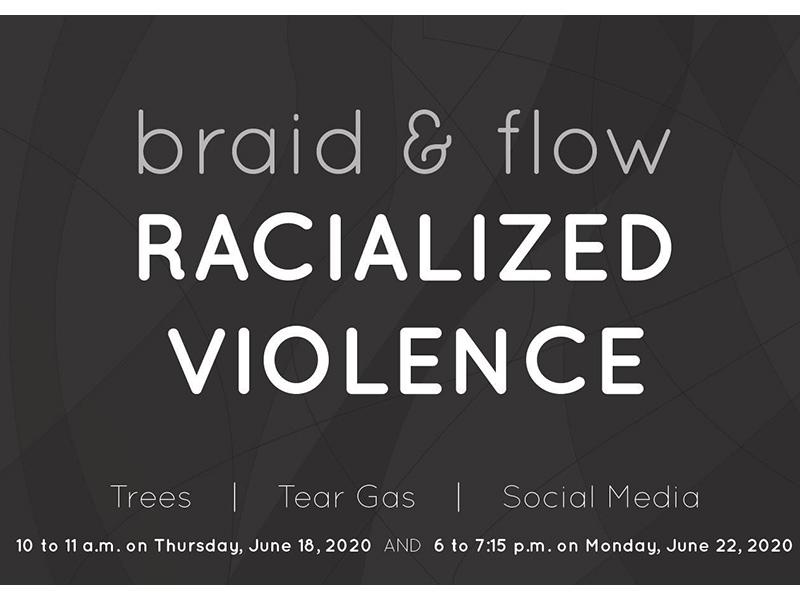Gulf South Anthropocene Working Group addresses the theme “Racialized Violence” for upcoming Braid and Flow events
New Orleans Center for the Gulf South (NOCGS) has partnered with The Water Leaders Institute and The Blue House NOLA to host Braid and Flow, a series of online gatherings that address ecological and political dynamics of our time. “Our goal is to learn from each other, and to strengthen the theories and the practices that guide our work as artists, activists, researchers, policy makers, writers, scientists, designers, teachers, students and leaders, all working to navigate the Anthropocene and the challenges of climate change and pandemic. If you are committed to sharing your own work and experiences, learning and dialogue, please join us,” reads the call.
Each month, the first virtual event includes guided discussion of the theme with three breakout sessions led by experts. A second virtual event, 3 - 4 days later, includes a recap of the first event, a creative prompt, time to create and upload results to a shared folder, and then a round table of participants sharing their offerings. Each month’s theme arises organically through conversation the preceding month. All are welcome to join.
“The Braid and Flow series is inspired by the ways in which some rivers meander, while others both split apart into myriad channels and weave back together across a broad floodplain. Similarly, we're creating a space for different disciplines and practices to come together around the biggest challenges we face as a society,” said Aron Chang, urban designer, co-founder and director of The Blue House NOLA. Chang; Tulane evolutionary biologist Dr. Jelagat Cheruiyot; sociologist, feminist, and activist Shana Griffin; Cattail Cooks co-founder Grace Treffinger; NOCGS Assistant Director Denise Frazier; and NOCGS Clark Executive Director Rebecca Snedeker conceived the project. All of the organizers were leaders of the Anthropocene River Campus last November, a week-long international gathering hosted by NOCGS that explored the Mississippi River as a case study through which to consider the human impact on earth, and they subsequently co-organized the Gulf South Anthropocene Working Group which emerged from that event.
“The New Orleans Center for the Gulf South continues its study of the Anthropocene by collaborating to create settings where we can observe how COVID-19, white supremacy and racism, and the climate crisis are interconnected in our surroundings and relationships,” says Snedeker, “and to look within at what roles we each play in this world.”
“The Gulf South Anthropocene Working Group is a collective of individuals who are committed to a profound analysis of the design of our region’s challenges and resistance,” Frazier said. This month, Braid and Flow addresses the theme “Racialized Violence” and the break-out sessions will focus on trees, tear gas, and social media. Speakers will hail from disciplines as varied as evolutionary biology and social practice art. The prior Braid and Flow conversation focused on the topic of food, with break-out sessions including health and nutrition, ecology and gardening, access and distribution. Ecuador’s former Minister of Public Health and current Tulane City, Culture, & Community graduate student Carina Vance Mafla spoke and discussed food labels and how policy regarding labels and design can affect health and nutrition in different countries.
The conversations are recorded and available upon request. Please email anthropocene@tulane.edu if you wish to receive the link to past Braid and Flow events.
This month’s Braid and Flow will take place Thursday, June 18, 10 a.m. - 11 a.m., and Monday, June 22, 6 p.m. - 7:15 p.m. If you would like to join the conversation, please click here.
NOCGS and the Gulf South Anthropocene Working Group hope that each participant of the series will imagine and share new possibilities for the future based on what they’ve learned.
For more information, visit Braid and Flow: Racialized Violence and/or email anthropocene@tulane.edu.

